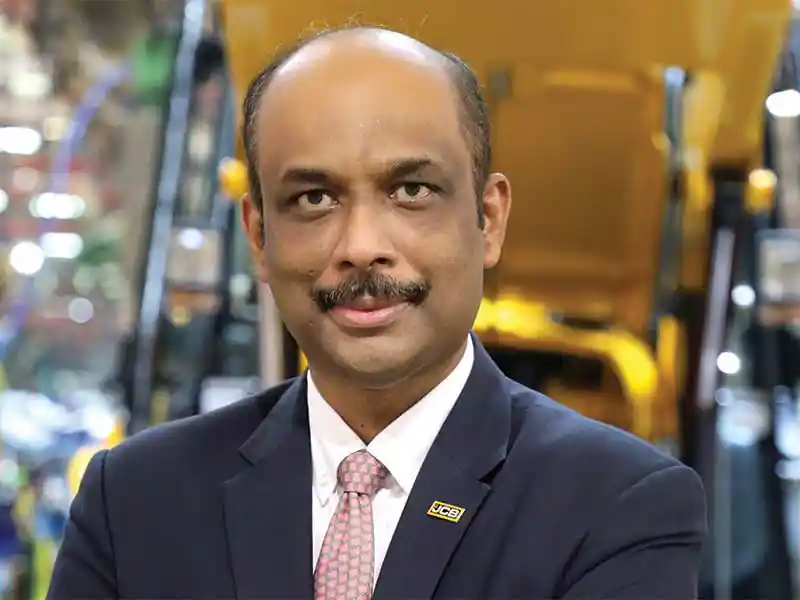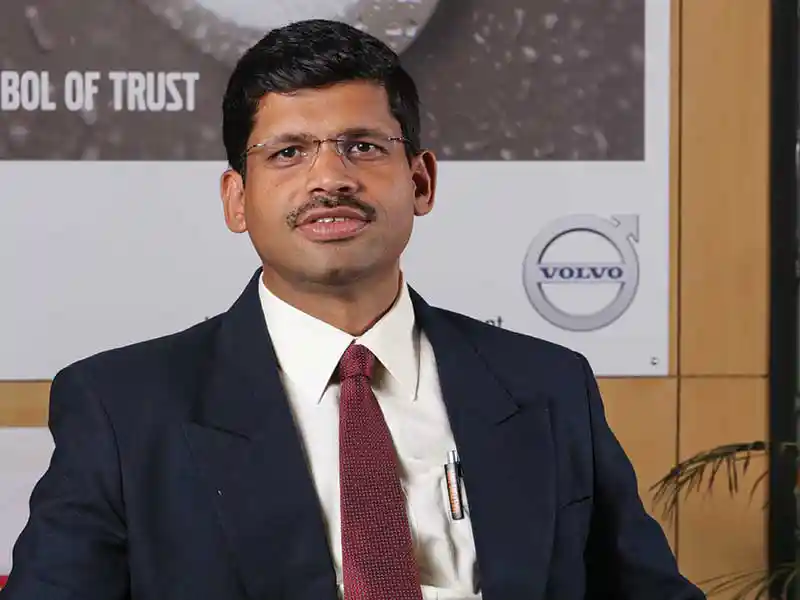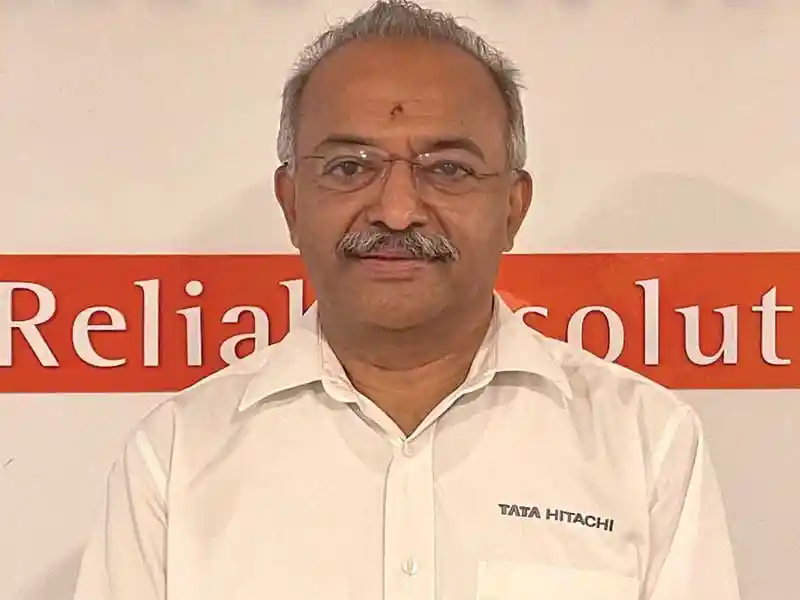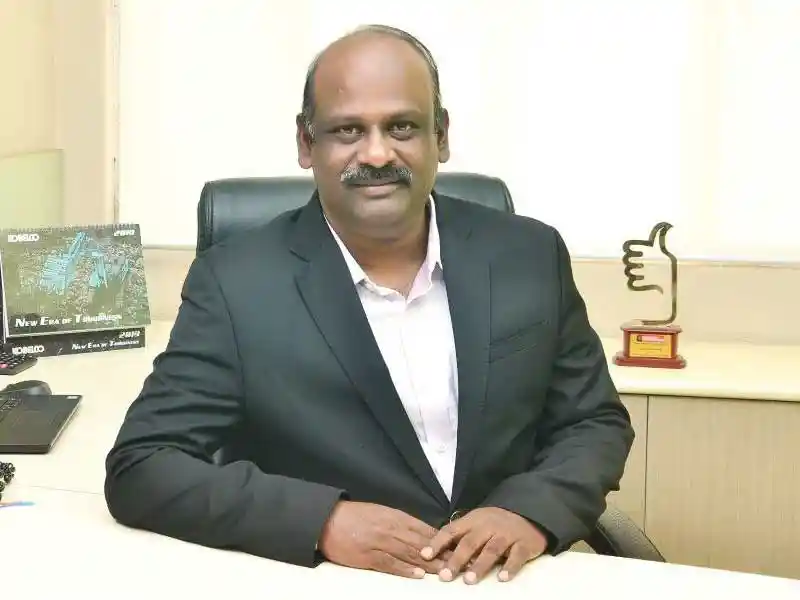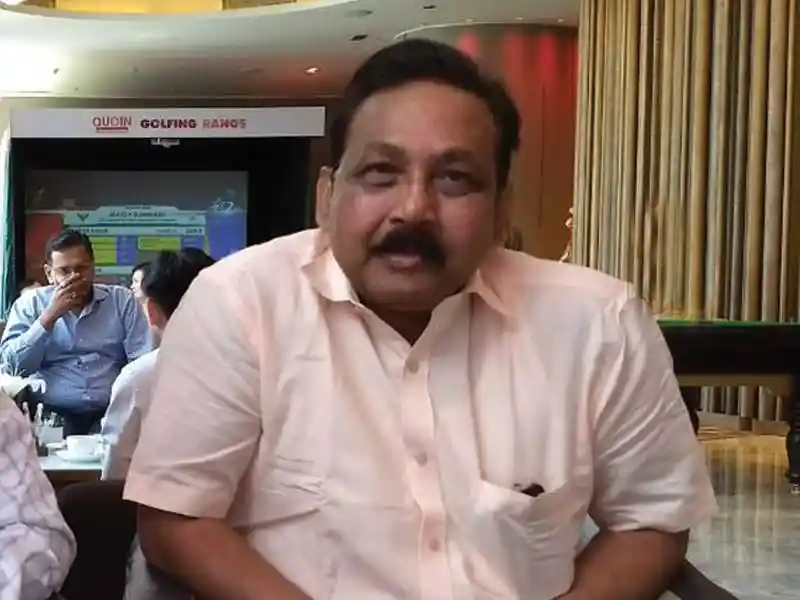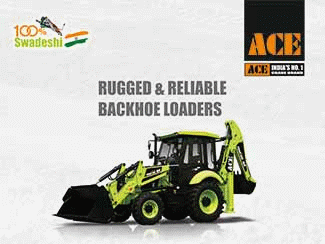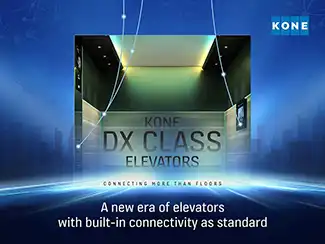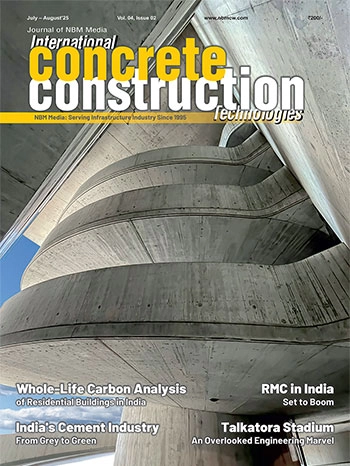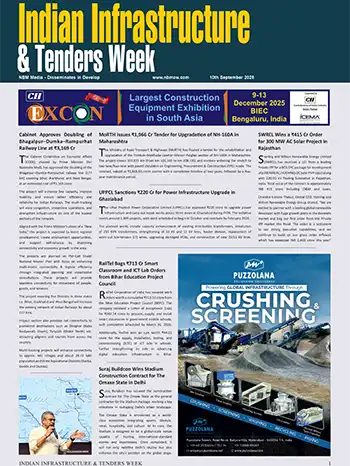Operator Skillset and Training - When Even More Is Less
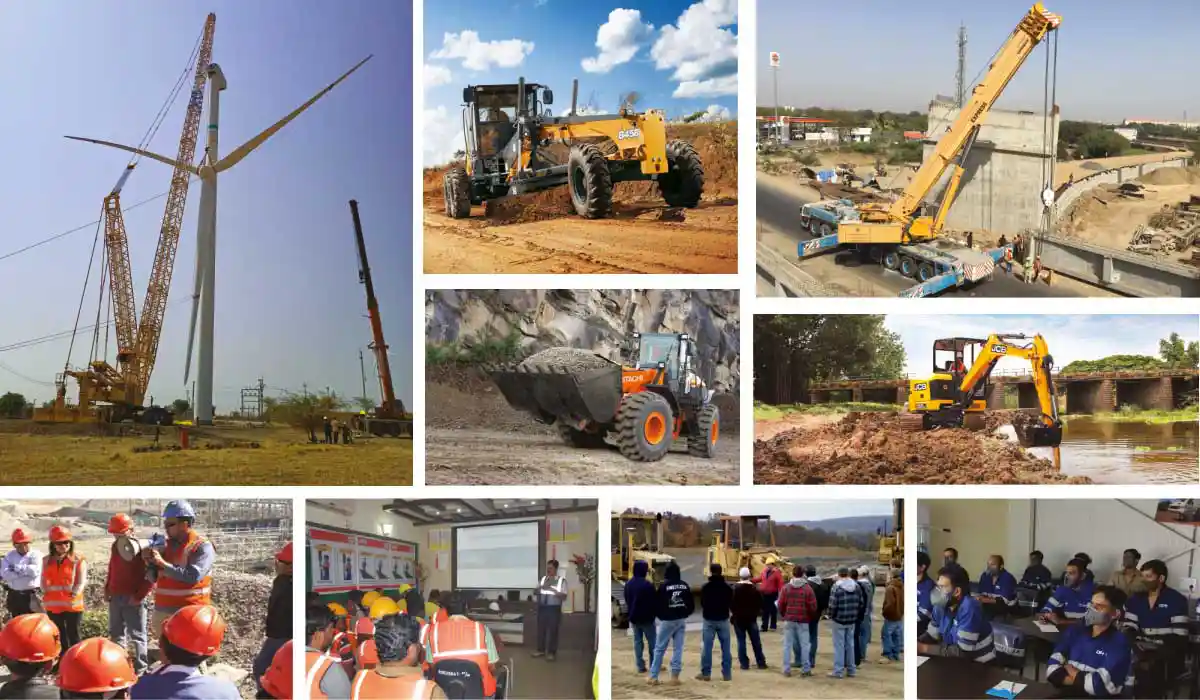
How is the CE industry dealing with the lack of skilled Operators and Mechanics to operate and maintain high-tech machines? Will the Ministries and concerned departments of Construction Industry make it mandatory to hire only certified operators & technicians so that they can fully utilize the advance technology and enhance productivity? Will this ensure demand for trained operators so that more aspirants opt for certificate courses? What support is the Government extending to the Industry by way of opening or part funding skill training institutes? To find out all this and what collective action the CE industry is taking to address the urgent requirement for skilled and formally trained Operators and Mechanics, NBM&CW discussed these important issues with the Heads of OEMs, Skill Training Institutes, and Infrastructure Equipment Skill Council (IESC).
With construction equipment becoming more technologically advanced, digitized, and sensor/IoT-driven, OEMs need to ensure that their machine operators have the technical know-how to operate their machines optimally, and that other handlers like the technicians, mechanics, and service and maintenance teams, are equipped to troubleshoot and ensure minimum machine downtime.
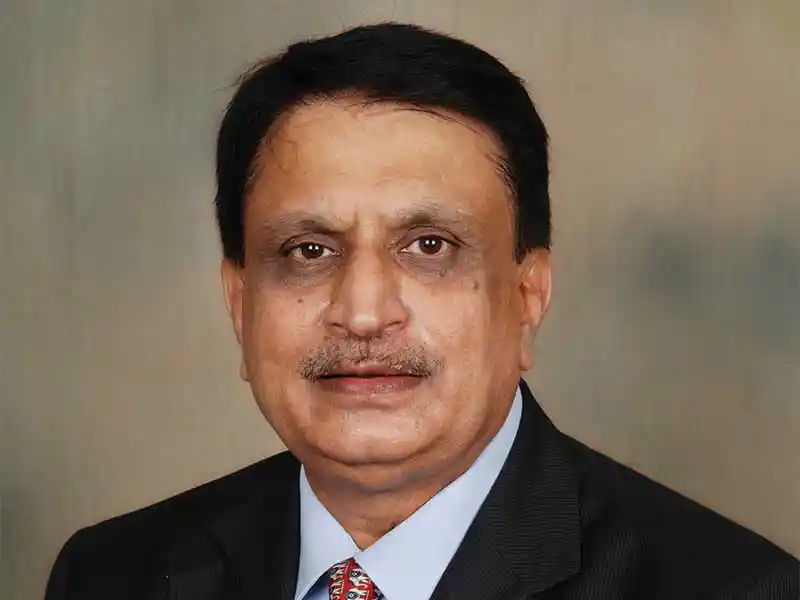
However, challenges remain at the mobilization level as there is no mandate for Operators and Mechanics to be certified. Currently, the Government’s skill training programmes are not market-driven and there are funding woes, institutional challenges, quality issues, and student constraints.
Mohan informs that to create a pool of quality operators, CE Industry body ICEMA is tying up with polytechnics and ITIs to introduce courses for students who want to enter the construction field. IESC has also approached the concerned Ministries to mandate deployment of trained and skilled personnel in all their tenders, albeit in a phased manner. “This will be a major step that needs to be taken across the Industry,” he says.
With training programs extending into other segments due to the addition of different and new types of machines, upgraded models, and the resultant job roles, it is important to provide machines and simulators for practical training to trainees, and also help them understand IoT and the various functions/sensors that drive a machine.
H.S. Mohan informs that about 44 OEMs have already joined hands with IESC to train and provide employment in the CE Industry, with most having invested in setting up world-class training centres. “They have realised that a trained workforce will help them in growing their business.” Many OEMs offer their own operators to customers and also impart training to their customers’ workforce, apart from providing training at jobsites. Some even hold industry-level competitions for operators and reward the winners, in a bid to encourage them to upskill and perform better.
However, despite a lot being said and done, the challenge of upskilling and training of operators remains. The OEM’s are fully involved in promoting the high-tech machines, however, the knowledge can only be imparted through the Qualification Packs and model curriculum approved by the manufacturers & the user industry. A systematic training covering all aspects by the certified trainers of IESC will enrich the knowledge on the current technological trends and its usage, which enhances the productivity with minimum down time of the equipments. IESC & OEM’s, through their association - Indian Construction Equipment Manufacturers Association are making continuous effort to encourage the government to mandate deputation of only certified operators. This policy needs to be implemented in phased manner.
The answers to the above questions could well determine the actions that the CE Industry needs to take if it wants to put in place a strong skilling ecosystem for the benefit of its stakeholders.
JCB has trained over 30,000 operators in its 18 Training Centres spread across India and Nepal.
Deepak Shetty, CEO & Managing Director, JCB India
Since machines undergo regular improvements and technological upgra- dations one must remain updated about the product.
JCB introduced the iconic Backhoe Loader way back in 1979 and this machine has since revolutionised the way construction activity has been done in the country. Almost every job site today has a JCB Backhoe Loader working tirelessly to build infrastructure.
Even though the concept of the Backhoe Loader is now very well accepted in India there is always scope for further skilling and training of operators. This is essential because, through continual innovation, the machines undergo various improvements and changes in technology regularly. So, it is better to remain updated about the product at all times.
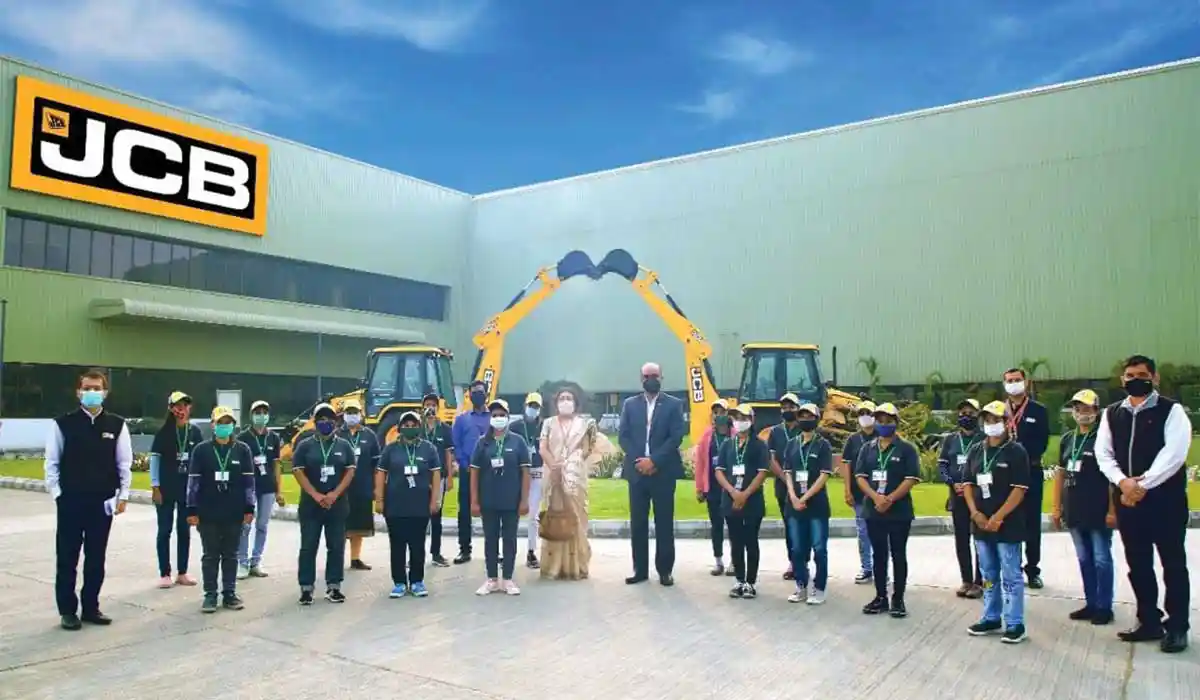
Skilling makes customers more aware of promoting higher productivity and safety on worksites.
JCB has ensured that its machines come with many features for greater efficiency and productivity of its machines. Since these features are further enhanced from time to time, it is essential that operators can use them to the fullest.
Trained operators handle machines professionally while untrained operators lack in-depth knowledge of machine operations and their optimal usage. With the current focus on skilling, we are seeing strong interest from customers who would like to recruit certified and trained operators for their machines. In addition to enrolling in JCB’s operator training schools, we also offer onsite training to our customers as this ensures that learning takes place on an actual site condition.
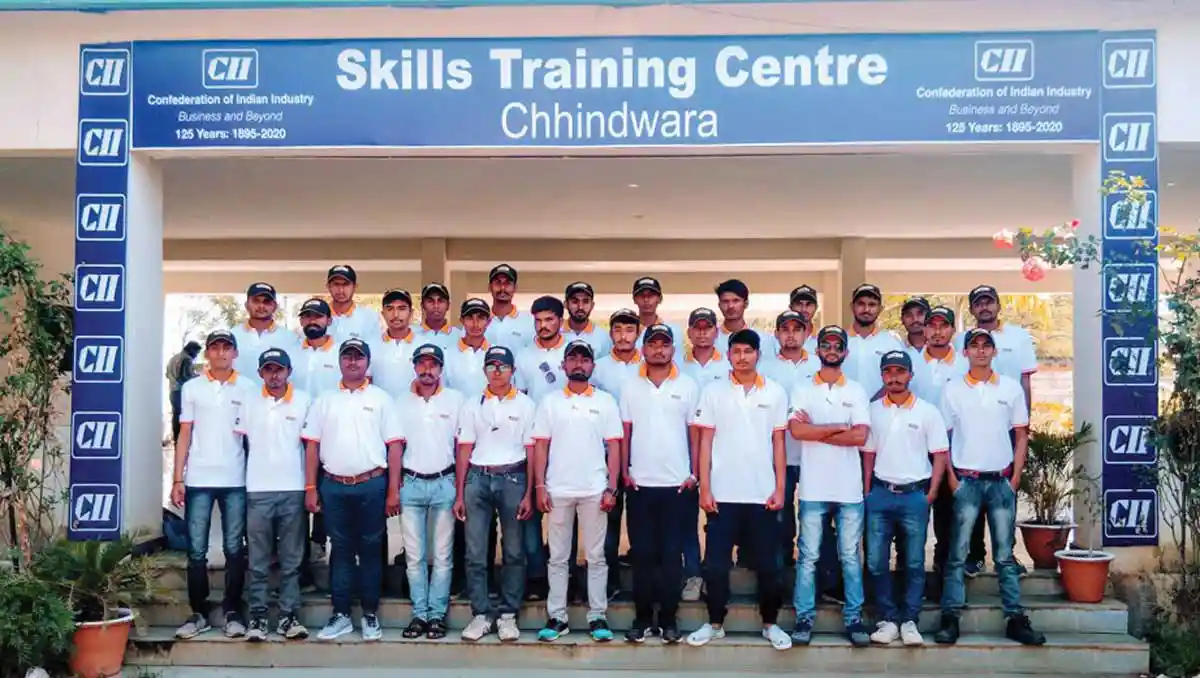
JCB was the first to have an all-women batch of trainees.
Very recently, through one of our Operator Training Centres in Noida, the company was the first to have an all-women batch of trainees. Through the training imparted at this centre, they are now independent machine operators and are making their careers in a male-dominated field of work.
We also offer knowledge sharing during operator meets, demos on customer jobsites, and conduct refresher courses.
Our 18 operator training centres in India and Nepal offer certified courses designed to make operators well versed with machine operations and their basic maintenance. These facilities are run professionally through certified training partners.
The course curriculum is vetted by the company to ensure a world-class level of training with qualified trainers, access to machines for practical training, and classrooms for theory classes. After completing the one-month training program, candidates are given a certificate.
JCB is now introducing simulators to increase the reach of its training program. We offer knowledge sharing during operator meets, train operators through JCB trained demonstrators on their site, and conduct refresher RPL & RPL4 (NSDC approved) courses.

Productivity and safety are of critical importance; hence, the CE industry must work together to get the global best practices in India.
India is a significant market for Construction Equipment. Each year 50-70,000 construction machinery is sold in the country. Each of these machines require operators for their efficient working. Moreover, with the Government’s focus on building infrastructure, construction equipment is being used round-the-clock to ensure timely completion of projects. It is therefore critical that the operators who operate these machines are skilled and trained to ensure maximum output and safety of these machines on the worksite.
The Infrastructure Equipment Skill Council (IESC) is the nodal agency within our industry for operator training and is entrusted with the task of creating the interface between the industry and the government. The member companies of IESC work together for improved skilling in the CE sector. In fact, the CE industry is making significant efforts to address the issue of skilling in the construction sector.
Unfortunately, there is no legislation that mandates that an operator must be trained on the equipment he operates.
The primary issue in providing training is that currently, no legislation mandates an operator to be trained on the machinery while operating it. A lot of training takes place on the job, which might not be the best solution.
At JCB, we have always stressed the importance of professional training while operating machinery, and that training should be mandatory for all operators so that equipment is used safely and productively.
Global best practices are being replicated in India and we are seeing an influx of technologies and products.
The industry also must keep updating the training programs on new product categories, as and when they are launched. Today, a variety of construction equipment is being introduced in India. Telescopic Handlers, Access Platforms, Skid Steer Loaders, and Mini Excavators are now becoming popular on our worksites. There now exists an opportunity for us to work together and create training courses for newer equipment being inducted into the sector.
The digital landscape due to the introduction of IoT, Machine Learning and applications is also changing the way the industry is developing. JCB has almost 200,000 connected machines that give real-time information about the Service, Operations and Security of the machines. This data is available to the operators, customers, and dealers. JCB operators must use these digital aids for their working, including for daily maintenance and checks of their machines, which will be beneficial in the life cycle of the machines. Harnessing the power of digital will also become critical as we go along.
Formal skilling is a major agenda for the Indian CE industry and we are seeking the support of the Government to make it mandatory for certification. This is because only a skilled operator can reduce the risk of accidents at jobsites.
Dimitrov Krishnan President, ICEMA Managing Director Volvo CE India
We are working on skilling the CE workforce through the IESC, which is promoted by ICEMA as well as NSDC.
Though the CE industry players are also training operators in their factory premises, and a certification ecosystem has also been set up by IESC, it has not been made mandatory. In a meeting with minister Shri Nitin Gadkari, we requested him to look into the issue of making certification mandatory for machine operators, since we are dealing with heavy equipment operating in construction sites which are often hazardous and unsafe.
Training institutes enable trainees to become adept at handling equipment, plus they learn to speak the language of the industry, and connect with customers.
Initially, IESC was training machine operators, who were hired by the end-users, but now we are also looking at training the youth to become technicians. In fact, many manufacturers, including Volvo, have their own dealership competence development programs.
During the last 6-7 years, many of our members and dealers have been engaging with ITIs, diploma institutes, and polytechnics for recruiting technicians, to whom we offer apprenticeships of two years so that they get the experience of working in factories.
It is also heartening to see ex-industry people working with these institutes to create the additional training program for the industry. One of our ex-dealers is now running an Institute of Technology which offers ITI and diploma holders a three-month training program, which makes the trainees adept at handling our products, plus they can speak the language of the industry, and connect with customers. However, we need to become more organized and work at the national level.
Manufacturers alone cannot fund training programs; equipment users will also have to give their share.
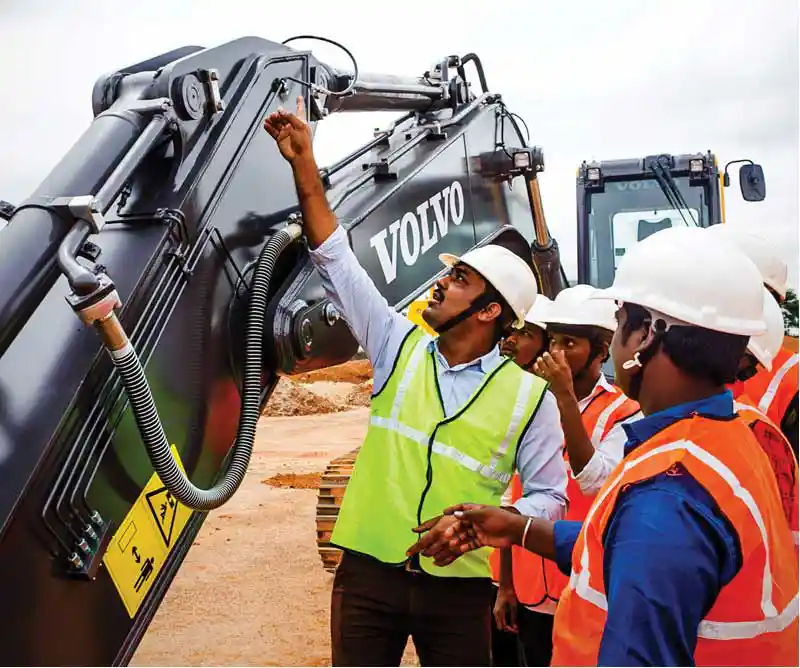
When IESC was formed, it was dependent on government grants, but in the long-term, we will have to find other ways also to finance the training activities. Manufacturers alone cannot do total funding, and eventually, it will have to be the equipment users who will have to give their share of funds to get skilled operators and workers.
We are working with the Government to make certification mandatory for machine operators. This will drive demand for training programs, and eventually, the programs could get funded possibly through tie-ups with small finance companies for loans.
The industry is taking several initiatives to upskill operators. For example, at Volvo, we conduct operator contests and award winners with cash prizes, which is a huge incentive for operators to upskill.
I think valuing operators and technicians is very important. At Volvo, we have launched an operator contest, which is in line with one of our marketing programs. The idea was to give the winner some money with which he could buy or make the down payment for an equipment. We also hold the Master Technician Competition for our dealers’ technicians. The winner then goes to the Asia competition, and two winners from there go to the finals in Sweden.
ICEMA would like to work with associations like CERA, COAOI and APAOI to make the industry more skill-based since their members are the users of our equipment. And we need to engage with the end-users of our products on the field so that we can assess their performance and help them use the equipment optimally.
Under the leadership of Sandeep Singh, Chairman, IESC and MD, Tata Hitachi, along with support from its member companies, IESC seeks to strengthen and further build on its momentum for creating a sustainable industry aligned ecosystem for robust skill and entrepreneurship development in the Infrastructure Equipment Sector.
Suresh Nair – AVP, Institutional Business and Key Accounts, Tata Hitachi
Operators with formal training exhibit a better understanding of components and basic maintenance.
Our focus is on upskilling operators who have had minimal formal training. These comprise operators who started at construction sites as helpers, and subsequently graduated to being operators without any formal training. Though highly competent in machine operation, and capable of delivering high levels of productivity, these operators are not very familiar with maintenance practices or upkeep of machines and safety protocols. Apart from these, we also train untrained operators who have had little exposure to the industry.
The technology of construction equipment today is increasingly shifting towards mechatronics. Hence, better understanding of the importance of different components and their basic maintenance is desirable. Operators with formal training at OEM-operated training centres exhibit a much better understanding of basic maintenance as well as understanding of the criticality of various components of the machine.
Knowledge and training on safe operating practices reduces breakdowns and accidents.
During formal trainings conducted by OEMs and other training partners affiliated to our Sector Skill Council, all efforts are made to provide elementary knowledge of the functioning of components, as well as utilisation of working modes provided in the machines to enhance productivity.
Awareness is also generated on the types of buckets and different attachments to be used in different applications to ensure zero downtime. Training is also imparted on practices to check incorrect usage that can lead to wastage of consumables and fuel, and on the safety aspects.
IESC is duly supported by OEMs through both their training expertise as well as their state-of-the-art operator training centres which are located pan India.
Apart from operator training undertaken by individual OEMs, the Construction Equipment Industry collectively through its Sector Skill Council - the Infrastructure Equipment Skill Council (IESC), has been imparting training to unskilled and semi-skilled equipment operators under the Government’s Pradhan Mantri Kaushal Vikas Yojana (PMKVY).
IESC, set up in 2014, operates under the aegis of the Ministry of Skill Development & Entrepreneurship (MSDE), Government of India. It is the apex body for spearheading the skilling of workforce in the Infrastructure Equipment Sector.
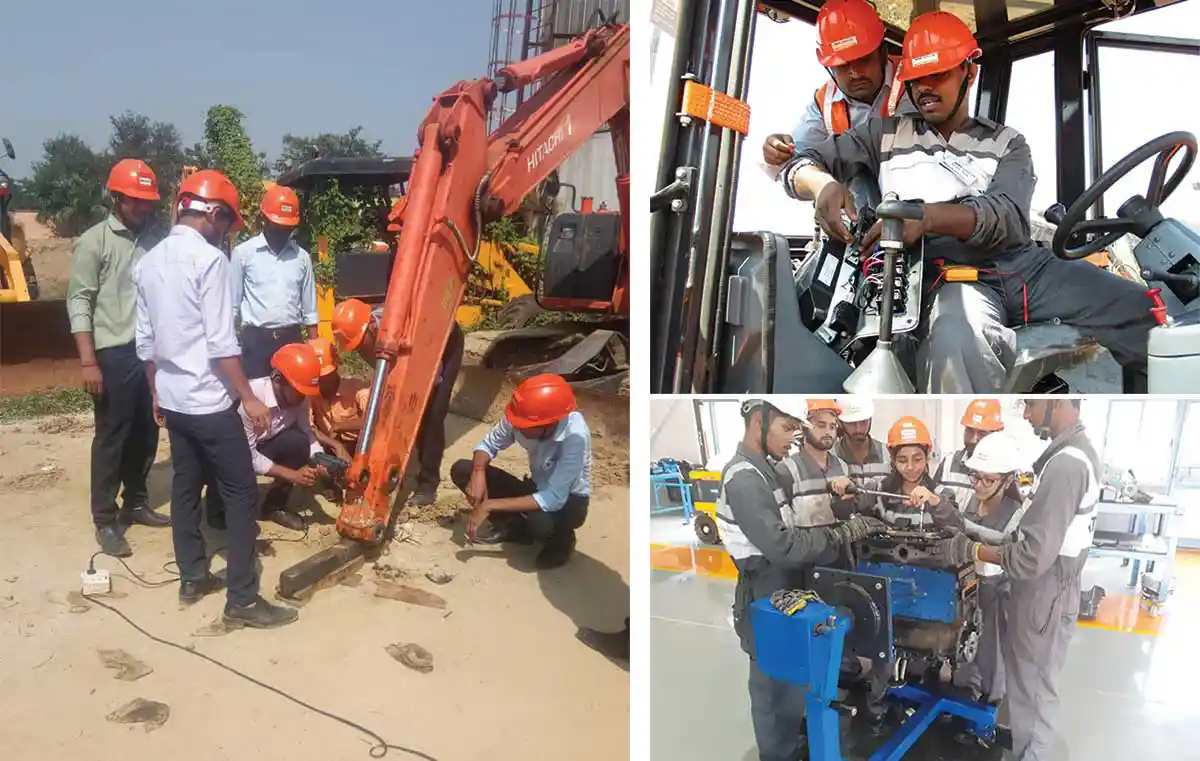
The Sector Skill Council, represented by 44 member companies, which account for 90% of the Infrastructure Equipment Industry, is promoted by the Indian Construction Equipment Manufacturers’ Association (ICEMA) and supported by the Confederation of Indian Industries (CII).
Since its inception, IESC has developed 40 job roles covering over 80% of the workforce, accredited over 60 Training Partners majority of whom are OEMs, certified over 800 trainers and trained over 50,000 personnel.
Key activities undertaken by IESC include development of National Occupational Standards (NOS), Skilling Standards and Qualification Packs, creation of job roles in line with Industry needs, affiliation, accreditation, assessment, certification, and training delivery including Training of Trainers (ToT), and maintaining a skills repository and knowledge base, amongst others.
Over 3 million operators and mechanics will be required to operate and service construction equipment between FY20 and FY30.
The demand for construction equipment operators and mechanics is expected to increase manifold in India, in view of the Government’s enhanced focus on infrastructure development, with flagship infrastructure schemes such as NIP and Gati Shakti National Master Plan.
As per the CE Industry Vision plan 2030, construction equipment sales are projected to increase 3 times to around 2,50,000 to 2,60,000 units by 2030. It is estimated that more than 3 million equipment operators and mechanics will be required to operate and service construction equipment between FY20 and FY30.
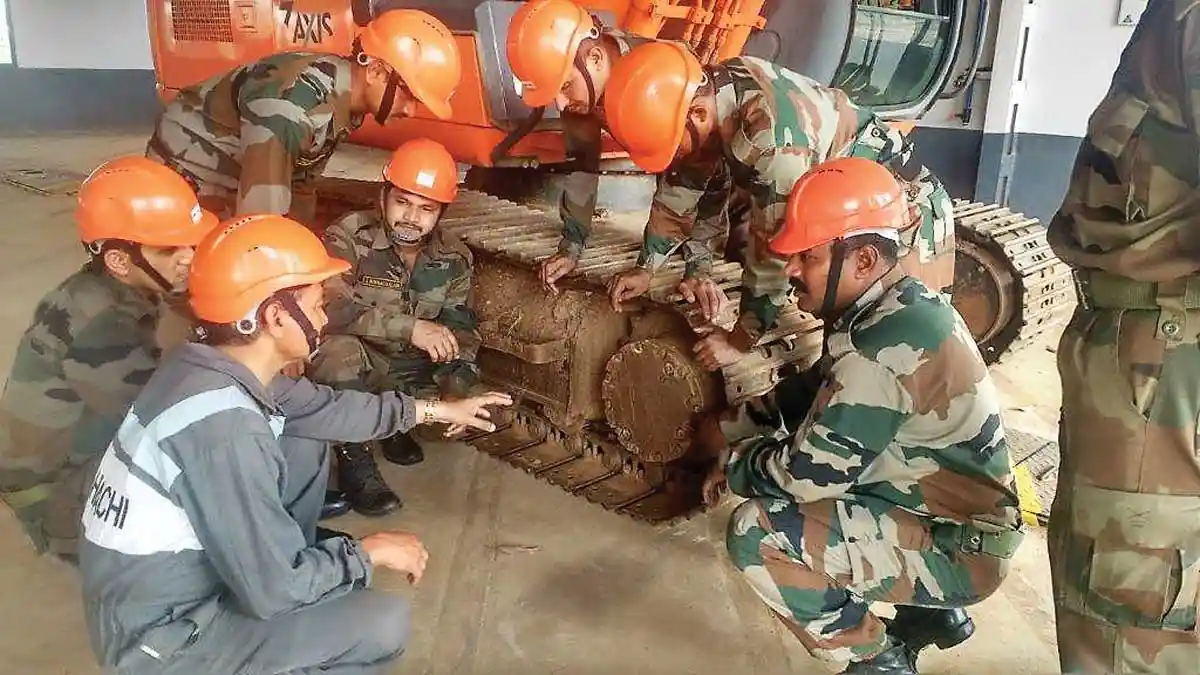
Unlike global standards, there is no regulatory requirement for employment of trained and certified construction equipment operators and mechanics in India.
One of the foremost challenges we face is in terms of absorption of training costs, which are higher compared to other construction related job roles by virtue of the capex and operating expenses involved. The approximate training cost for one candidate is ₹85 per hour. If food and lodging are included, this component shoots up to ₹150 per hour.
After the training is concluded at our centres, it is ideal that the trainees should be deployed for On-the-Job Training (OJT) at actual work sites. This would go a long way in enabling them to augment their acquired skills with real world experience in operating under actual conditions. However, opportunities for such OJTs are limited in the current milieu.
Finally, construction equipment operation is not a very attractive career prospect for today’s youth in view of arduous working conditions. Also, construction equipment is usually deployed at remote sites which may be quite far from the home village or district of the trainees. Hence, the prospect of spending months away from home is also a deterrent for considering a job as a construction equipment operator.
Another key area of concern is that unlike global standards, there is no regulatory requirement for employment of trained and certified construction equipment operators and mechanics in India. In view of the increase in demand for CE operators and mechanics in future, and on account of safety requirements with regards to operation of construction equipment, graded mandatory certification of operators is crucial.
L&T-CMB has been a leader in the last five years and has trained over 13,000 operators and mechanics. IESC, as an industry body, has trained close to 50,000 operators and mechanics in the year 2019-20.
KA Sravan Kumar, Head-Product Support, L&T
Despite all the efforts from OEMs and IESC, there is both a skill gap and supply-demand gap for operators and mechanic and a lot more is required to be done where customers will also have to join hands.
The last decade has seen a quantum increase in the use of mechatronics and ICT tools in the Construction and Mining Equipment. New models are upgraded and loaded with features that not only make them more efficient but environment-friendly as well.
Compared to a 20-year-old excavator with working modes, the latest Komatsu PC210-10M0 has six different working modes to choose from, each one tailor-made for different jobsites and production requirements. An operator therefore needs regular upgrade to be conversant with these features so that the benefit is translated into higher production or higher fuel saving.
Since the basic working methods have remained unchanged, the operator feels that he is doing a good job, while the data captured through sensors narrates a different story and exposes a lot of areas to be improved. Today, we are in a 50-50 situation, where the operator is aware of the capabilities of the machines and another half who just operate without using all the features that the machines offer.
In the training that we provide to operators, we teach them to operate machines as per the required application, and fully utilize the advanced technologies to enhance productivity.
In all our operator training sessions, a lot of emphasis is given to safety and proper use of PPE from the very beginning. This aims at making the operators and mechanics environment a safer and a disciplined arena. Training stresses on basic activities like walk-around inspections, proper seat, rear-view mirror adjustments, AC temperature settings, etc. - areas that will reduce fatigue for operators and not allow the production to dip during long hours of operation.
On the machine front, inputs are provided on features and how to use them for different types of job requirement, for example, the mode selection for a blue metal quarry will differ from an irrigation project. Reducing unproductive power consumption is the key to energy saving operations and a master operator will demonstrate the techniques to the trainee team.
For an excavator, proper bench preparation, swing angle, and the bucket attack angle are some of the factors that enhance productivity. Understanding monitor panel, the eco-guidance and caution that they exercise, are areas which an operator should be conversant with.
Komatsu’s excavators are equipped with telematics monitoring systems (KOMTRAX) that provide operational reports for machines and fleet wherever applicable. These reports are discussed with operators to make them aware of how their performance is getting tracked and evaluated, so much so that KOMTRAX has become an effective tool to evaluate and recognize operators.
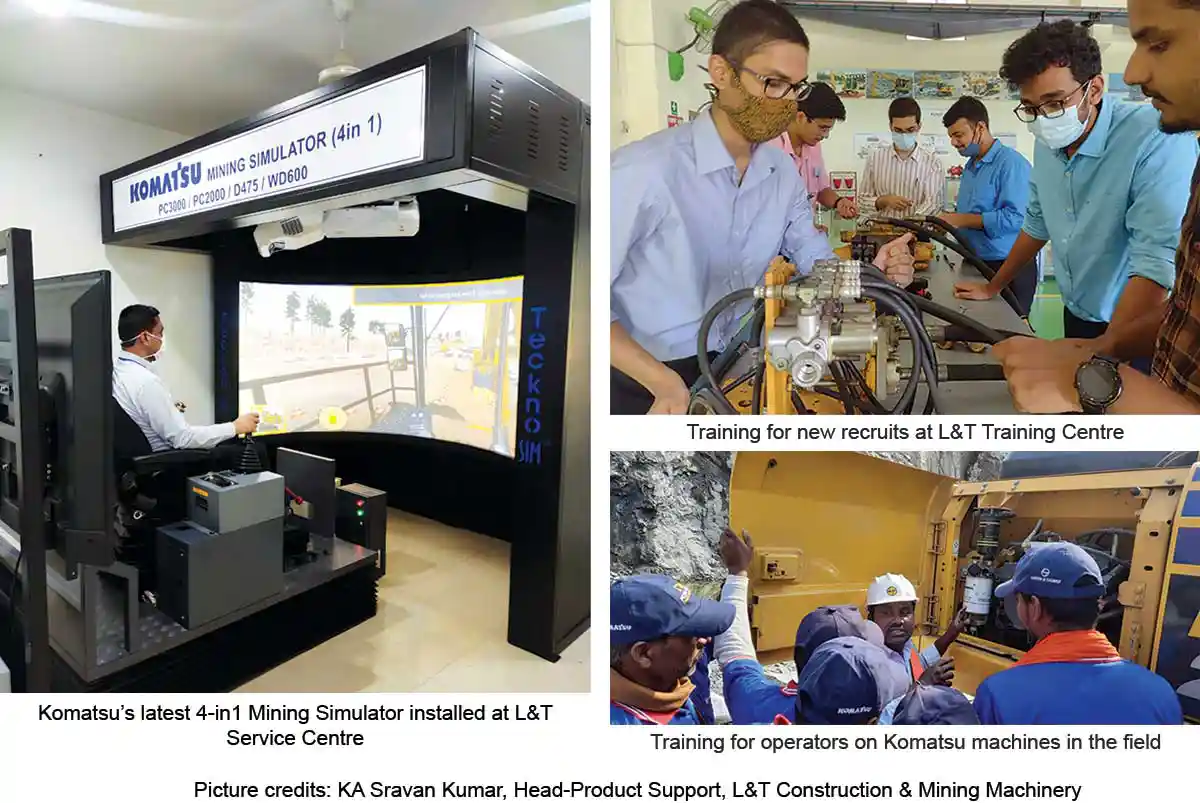
We have joined hands with the government of Odisha to conduct training programs at ITI – Barbil, and with the National Academy of Construction in Hyderabad.
The IESC under ICEMA is dedicated towards skilling and certification of operators and mechanics and creating a healthy skilling eco-system. Almost all the OEMs and major distributors are members of ICEMA and connected to IESC.
GOI’s focus on skill development through NSDC (National Skill Development Corporation) has schemes under the PMKVY (Pradhan Mantri Kaushal Vikash Yojana) that have a well-defined training and certification framework not only for beginners but also for experienced operators and mechanics through the RPL-4 and other schemes.
L&T-CMB trains unemployed youth who desire to take up CE operation as a career and offers them to our customers for employment. The operator pool thus created adds value not only to the individual, but it also inducts trained personnel in the industry which enhances the quality of the industry.
Training for freshers should largely be free of charge and sponsored either by OEMs under their CSR, or through a government scheme.
A training centre for construction equipment requires high capital investment in terms of infrastructure and training aids since the practical portion in the training agenda is around 3-4 times the theory portion. The operating cost of the machines required for practical training is high, while the monetary returns are negligible.
Trainees largely come from modest backgrounds with low academic qualifications (only class 8 pass is okay to start as a junior excavator operator as these trades require more skills of the hand). As a result, we don’t find many operator and mechanic training schools.
Smaller contractors operating a small fleet find it hard to spare operators and mechanics for skill development programmes due to the tight project completion commitment. Owners prefer to host training sessions on Sundays or on holidays, but the trainees prefer to spend the off days with their families.
Another challenge is that not many youngsters today find this profession attractive as they tend to miss the fast-paced city life and have to work at construction sites. Generally, boys from rural areas opt to become operators and mechanics.
OEMs with a culture of continuous learning and skill development play an active role and they also share the burden of expenses.
L&T-CMB, during their 75 years of journey in this industry, have developed a Central Training Centre in Kanchipuram and five regional training centres across the country. We have well-equipped classrooms, machines, simulators, actual machine components for demonstration and experienced faculty to handle training. We even have portable simulators at regional centres so that they can be taken to jobsites where training can take place and trainees can save on travel time.
Kobelco builds in several efficiencies and conveniences for the operators, while our training and field service teams provide proper guidance and monitoring to ensure that the owner gets the full benefit.
E. Moses, Vice President, Division & National Head, Kobelco Construction Equipment India
Operators are at the focus of our efforts for delivering a high-productivity and reliability machine.
Operators at Kobelco are a performing lot, who give their best in the working environment provided by Kobelco. We believe that operators are the most vital element for delivering on the design potential of any construction equipment. It is for this reason that they are at the focus of our efforts for delivering a high-productivity and reliability machine. Its almost as if we are trying to ensure the owner receives 100 units every hour, but it is actually the operator who ultimately delivers on the promise. Otherwise, the owner gets something lesser, and it becomes a loss-loss situation for all stakeholders.
The machine “delivery process” includes an exhaustive training and briefing routine to make sure that the operators achieve the maximum capabilities. They are also taken through the “safety drill” and the list of “do’s and don’ts”, besides the importance of timely maintenance and the use of genuine filters, oils, and spare parts, so that the operational efficiency of the equipment is sustained over time.
We also conduct “Operator Meets” to brush-up their skills and to keep them properly briefed and motivated to achieve the highest standards.
An unskilled or under-skilled operator is unable to exploit the machine’s potential in terms of output or fuel efficiency.
The need for good and skilled operators has been felt since a long time, especially with the introduction of newer technologies. While no person is allowed to drive even a two-wheeler on the road without a proper driving licence, there is still no legislation requiring the operators of costly construction equipment to mandatorily have a licence or a certification.
This creates a very unfavourable situation as there is not enough demand for certified operators and this undermines the demand for new entrants into this profession which has witnessed a steep rise in the requirement of new skillsets.
The real demand for skilled operators is very high, and OEMs cannot possibly fulfil it due to resource constraints.
The CE industry through its collective body, ICEMA, instituted the Infrastructure Equipment Skill Council (IESC) with the objective of promoting a network of OEMs and their dealers on the one hand, and training partners and certifying agencies on the other, and kick-start the organized development of skills with classrooms as well as practical trainings, followed by a standardized certification valid across the country and even abroad.
Many OEMs are already having their own training infrastructure, which they have aligned with the IESC and are providing opportunities for skill development and certification. However, the real demand is very high, and OEMs cannot possibly fulfil it due to resource constraints. The Government has taken some initiatives, but the journey till date has been far from satisfactory.
Since there is no mandate for hiring only skilled operators and mechanics, there is inadequate demand for trained/certified operators.
In addition to the issues of resource constraints with OEMs and the lack of a legal mandate for having a licence/certification, there are several issues which have stalled ongoing efforts in this area. Firstly, the availability of training equipment is a major block. Whether it’s a current model of a machine or a suitable ‘simulator’, the cost is very high.
Also, considering our geography, we need to have many training centres. This also raises the question of financial viability of each training centre as the demand is not enough for the estimated training cost of each operator. New entrants would not be willing to pay a high price, especially when there is no assurance of getting a proper job. Also, because of the lack of a mandate, there is inadequate demand for trained/certified operators.
The better operators know a machine, the better they will treat it, which will result in higher availability and reduced operational damage, leading to lower operating costs.
Rajeshwar Singh Managing Director GHH Group
For our equipment, which is new to the Indian market, we have hired the best talent in the industry.
We have employed experienced operators – people with practical knowledge of more than 15 years, who work closely with our customers once our machines are sold to them. Within 2- 3 weeks of hand holding, the customers gain enough technical knowledge of the controls, functions, and safety aspects, and the confidence to operate the machines independently.
For operating our high-tech machines like the IS26 and FM3.0, our operators undergo prior training. Their handling of the machines is tracked in real time, and, if necessary, corrected by our on-site personnel to ensure the best operations at all times.
We hand hold our customers’ operators till they learn the controls and help them increase their operating efficiency.
As our operator trainer works hand in hand with the customer operator, he understands the problems operators face with new controls. We conduct practical drills for the operator before starting the machine and while shutting it down once the work has been completed.
The do’s and don’ts of machine operation, basic maintenance and troubleshooting are also explained to them during training. The icebreaking exercise is an important aspect of our training, as operators are often hesitant to use a machine which is unfamiliar to them.
On arrival of a new machine onsite, GHH India’s technical personnel undertake operator training, along with providing them basic knowledge on the machine’s technical aspects. Awareness training includes identifying potential risk areas like hot surfaces, moving components etc of the machine.
There has to be a collective effort to address the issue of unskilled operators, which is one of the biggest challenges in India.
The CE industry and its stakeholders have to make efforts to skill operators and mechanics with all the resources available to them. Understanding this need, the Government came up with the Skill India initiative in 2016-17, wherein unskilled operators are provided skill building training so that they can be employed gainfully. We are already seeing the positive results.
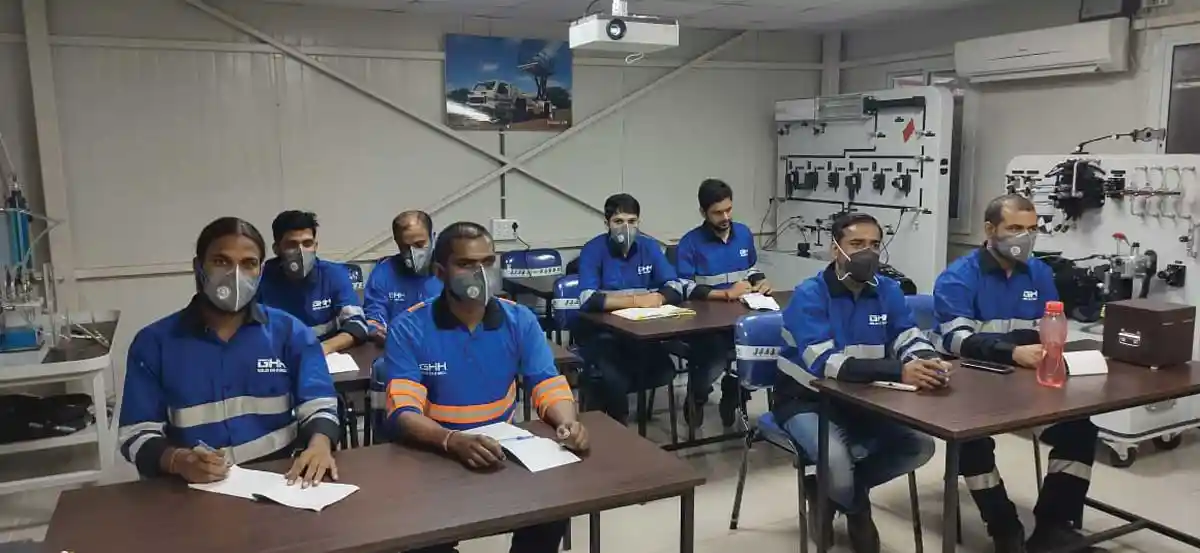
One of the bigger challenges is the remoteness of most customer sites we are operating in.
To conduct high level training, we not only need training content that can be conveyed through simple presentations, but also hands-on training and simulators, which are hard to provide in remote areas.
On the other hand, getting the operators to a training centre for a specific time takes them out of operation, which most customers cannot afford due to the shortage of workers.
Most of our projects are based in remote locations, especially the road and rail projects. Taking simulators to these locations is difficult and sometimes, not feasible. So, we deploy our experts on the sites from time to time to provide skill building training to our customers’ operation and maintenance teams.
In fact, we have started a technical support agreement with our customers, wherein we deploy our engineers or operator trainer full time at their site. This gives the customer’s operators and maintenance team the confidence to work with greater ease and the confidence to run the machines smoothly.
We mould our training courses as per local needs, so that the operators can correlate their past practical experience with our courses in the simplest way and learn fast.
Language is another issue which creates a barrier for learning. In India, we have more than 29 different languages, and it is difficult to conduct training in all the languages. So, we use a trainer who can communicate with operators and the maintenance team in the local language.
Another issue is finding operators with adequate education; this does not mean that they are not good operators; in fact, they can operate the machine without any problem. But imagine if they were educated and could understand circuits and drawings. It would make the task of training so much easier on simulators and through online classes. They would learn the technologies and the machines’ functionalities much more quickly and effectively.
Lack of proper infrastructure, inadequate skillsets and high attrition rate amongst trained manpower is prevalent across job sites in India. As these issues are addressed along with the shortage of skilled operators and mechanics, the high-tech machines being developed will deliver desired results in the long run.
Sandeep Mathur, Brand Leader, CASE New Holland Construction Equipment
As demand for technologically advanced machines has increased over time, acquiring the skills to operate these machines has become equally important.
We are witnessing a recovery of the Construction Industry, which is fuelling demand for advanced equipment and skilled manpower. To meet this demand, a lot of innovations and technological advancements are being done by the OEMs in their equipment to increase productivity, fuel efficiency etc. and complete projects in the given time and budget. So, upskilling and learning to use high-tech machines is paramount in order to enhance productivity and ensure the safety of the operator on site.
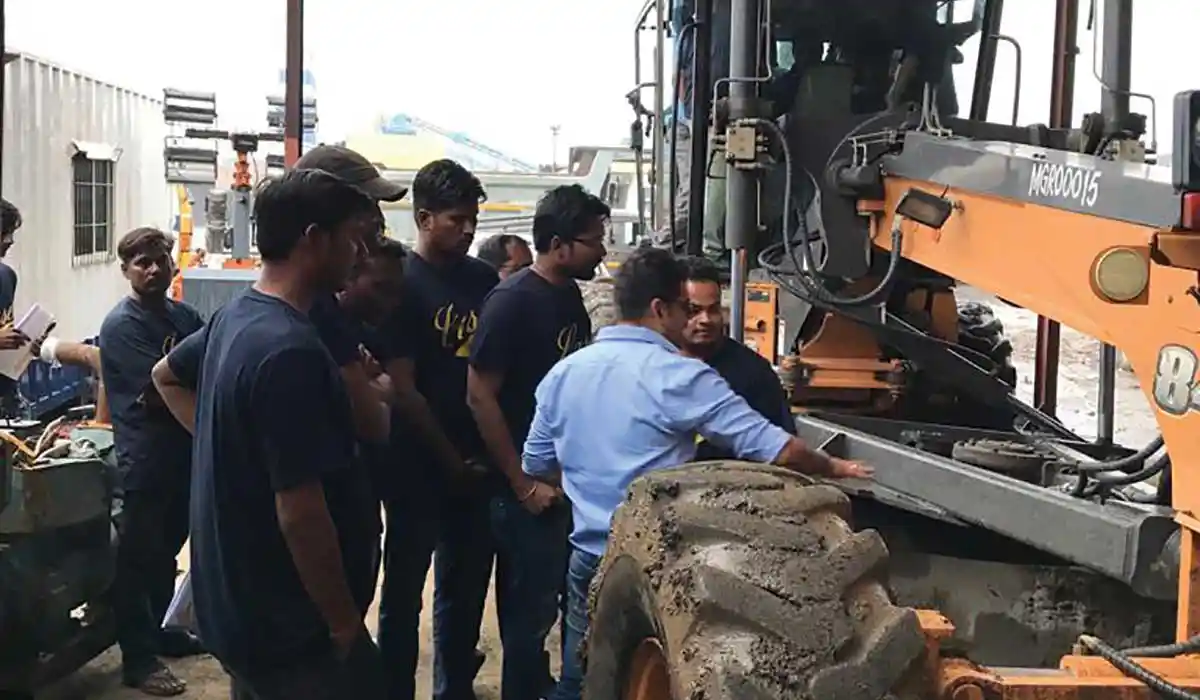
Continuous support is provided by the CASE team to train customers and equip them with information on our machines’ features and operations.
At CASE, we aim to provide the best support to our customers from the purchase of the machine to training and maintenance. We ensure that the operators learn to handle the machine efficiently, for which CASE gives practical demonstrations and training to its customers to operate the machines on their arrival at the location. A fully structured three-day commissioning process is followed by our aftermarket team to train and educate the operators on the operation and maintenance of the machines.
We create awareness amongst the operators so that they can operate the machines as per the application and fully utilize the advanced technologies to bring productivity and enhance operating and owning costs.
Our service campaigns regularly reach out to operators and guide them on the best maintenance practices of the various sub-assemblies of the machines. This helps them in a better understanding of the machine, which improves their productivity in the field.
CASE regularly provides online operator training as well as maintenance booklets.
Our online videos on the CASE YouTube channel showcases the features of the equipment in detail. Our online training program was especially helpful during the lockdown period.
We also provide pocket-size booklets on maintenance and decals on specific machines for regular maintenance. These booklets are a one-source solution for the operators to learn the features of the machines.
CASE Sankalp Program is a technology-driven initiative to keep operators informed and updated on the latest machines and technological advances.
Our Operator Loyalty Program called ‘CASE Sankalp Program’ keeps operators updated on our latest machines and their technical advancements. It has been especially created to engage them with our CNH promotional programs on their mobile phones. Through this program, they are encouraged to provide feedback on the performance of the machines and their genuine parts, and also participate in our operator skill enhancement initiatives.
With an easy download of the App and registration, operators will get regular updates on new launches, upgrades done on machines, new parts, upcoming offers, etc. Registering on the App offers various other benefits such as opting for new machine referrals, getting authentication of genuine parts through a unique bar code printed on the MRP sticker, etc.
CASE genuine parts go through intensive testing to ensure high quality and durability. Therefore, our App-based programs are beneficial to the operators as they encourage them to understand the value-additions in the machines and operate them with the knowledge of their comfort and safety.
As part of our CSR initiative, we offer a four-week training program for new operators and certify them on completion of the course.
The CE industry is offering operator training programs to address the lack of skilled operators. At CASE, we are continuously providing training and skill enhancement programs to boost operator knowledge of our new products and upgrades. Besides training, we are also creating an operator database to help reach out to operators and address their concerns. And our operator App for customers helps them locate the nearest center for any help on their machines.
As the industry is stepping up its technological transformation, we are offering VR and stand-alone simulators and taking operator feedback on their experience. This facility also helps the company in planning and customizing its services as per the feedback.
There are some practical issues and challenges in providing training.
While the industry manages to provide the best of services and training to the operators to use the machines efficiently and stay up-to-date on new parts, there are various challenges faced in successfully training operators across the country.
Over the last two years, the pandemic lockdown was a major challenge, and we tackled it by using the digital platform to reach out to the operators. However, the literacy level of the operators can be an issue while communicating. There may also be technical errors, lack of an understanding of IoT, a deficit of customized and robust simulators for specific machines for training, lack of portable simulators for onsite training, and the unavailability of training centres.




